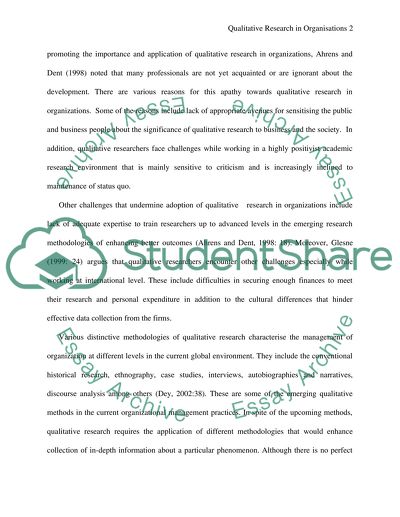Cite this document
(“Provide a justification for qualitative research in organizations Essay”, n.d.)
Retrieved from https://studentshare.org/literature/1429114-provide-a-justification-for-qualitative-research
Retrieved from https://studentshare.org/literature/1429114-provide-a-justification-for-qualitative-research
(Provide a Justification for Qualitative Research in Organizations Essay)
https://studentshare.org/literature/1429114-provide-a-justification-for-qualitative-research.
https://studentshare.org/literature/1429114-provide-a-justification-for-qualitative-research.
“Provide a Justification for Qualitative Research in Organizations Essay”, n.d. https://studentshare.org/literature/1429114-provide-a-justification-for-qualitative-research.


